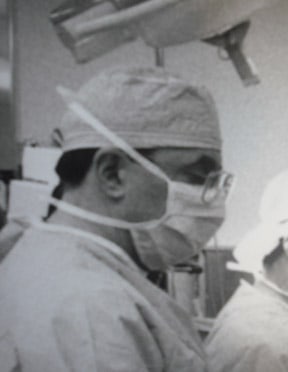by Physician’s Weekly blogger, Skeptical Scalpel
At the annual meeting of the American Economic Association, Nobel Prize winner Angus Deaton said to the Washington Post, “Physicians are a giant rent-seeking conspiracy that’s taking money away from the rest of us, and yet everybody loves physicians you can’t touch them.”
According to David R. Henderson, a research fellow at Stanford University’s Hoover Institution and an associate professor of economics, rent-seeking is “the payment to a factor of production in excess of what is required to keep that factor in its present use.” For example, if you had a Super Bowl ticket with a face value of $2000 and you scalped it for $3000, the $1000 profit would be considered “rent.” When you ask your boss for a raise, you are rent-seeking. Henderson sees nothing wrong with rent-seeking.
To build his case, Deaton says “We have half as many physicians per head as most European countries, yet they [meaning US doctors] get paid two times as much, on average.” Doesn’t Deaton’s statement imply American physicians might be doing twice as much work? If we had the same number of physicians per capita and were paid like European doctors, wouldn’t the costs be about the same?
A 2018 study published in JAMA looked at healthcare spending in the US and other high-income countries and had this to say about physician incomes: “Although remuneration varies widely across systems, the optimal level of compensation remains unclear. Salaries in the United States may be high, but recent debates on remuneration of medical staff in the United Kingdom and France…suggest that salaries in other countries may be too low.” Deaton may not be factoring in the average debt for med school graduates, which is now about $200,000 with interest accruing during their low paying residency training years.
Physician reimbursement is set by the market, not the doctor. About half of practicing physicians are in private practice. They may bill whatever they want, but the amount they receive is whatever private insurance, Medicare, or Medicaid decide is appropriate. Salaried doctors, the other half, are paid by their hospitals or groups, organizations incentivized to keep salaries as low as possible. The way to decrease what doctors make is to make more doctors, which is happening right now.
Deaton’s insults came to light at the same time as an Annals of Internal Medicine paper finding that compared to Canada, the US pays twice as much for administration of its healthcare system. Canada pays 17% of its healthcare expenditures for administrative costs, while we pay 34%. Interacting with payers cost US doctors an average of $169,000 yearly or 21% of gross receipts. The authors of the study said “Discussions of health reform in the United States should consider whether $812 billion devoted annually to health administration is money well spent.”
While Canadian doctors pay a little under $37,000 per year.
The economists aren’t happy with “surprise billing” that occurs when a doctor who is “out of network” cares for a patient in a hospital that is “in network.” Although they are economists, they apparently don’t understand that some doctors are out of network because certain insurance companies—knowing they have leverage—low-ball doctors during contract negotiations or even simply say “take what we offer or leave it.” Those choosing to “leave it” are out of network.
I get that some doctors charge too much, but we are not the reason the US healthcare system is so expensive, nor are we rent-seeking.
I think the economists are just jealous. After all, have you ever heard anyone say they loved an economist?
Skeptical Scalpel is a retired surgeon and was a surgical department chair and residency program director for many years. He is board-certified in general surgery and a surgical sub-specialty and has re-certified in both several times.For the last 9 years, he has been blogging at SkepticalScalpel.blogspot.com and tweeting as @SkepticScalpel. His blog has had more than 3,700,000 page views, and he has over 21,000 followers on Twitter.



 SkepticalScalpel
SkepticalScalpel